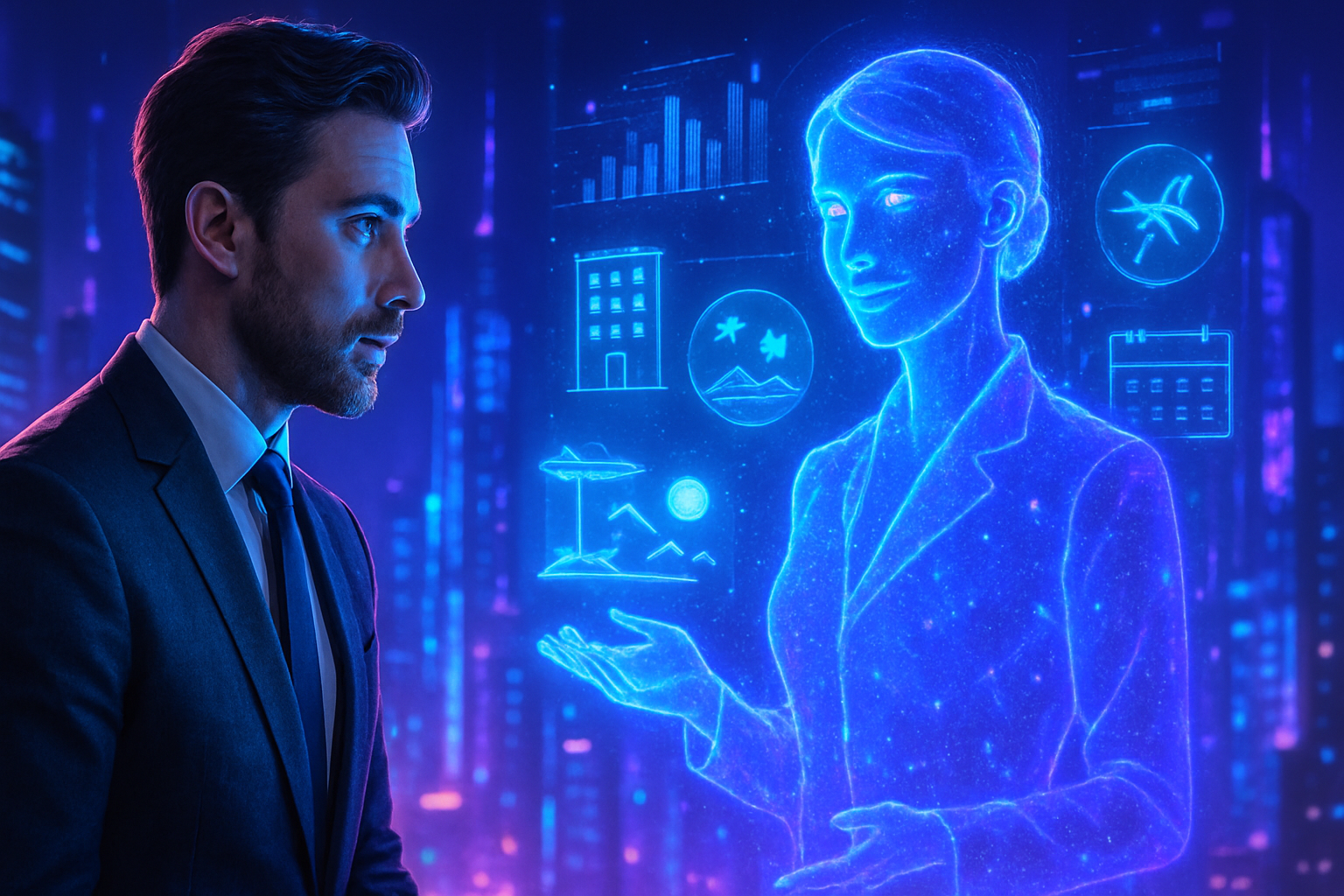The world of travel agencies is undergoing a fascinating metamorphosis. Smart agents are establishing themselves permanently within conversations with clients, radically changing expectations and experiences. A bold digitization is revolutionizing customer service, making dialogue with a machine not only accessible but also enjoyable. Stories from British journalists highlighting the smart agent of Hotelplanner.ai reveal an unprecedented reality: seamless and personalized interactions, defying prejudices about artificial intelligence. A captivating blend of technology and friendliness is redefining modern travel.
An astonishing dialogue with Cassandra
A journalist from the Mirror recently contacted Cassandra, an intelligent travel agent operated by HotelPlanner.ai. This experience revealed a surprising interaction, where technology did not merely state facts, but met the expectations of a human conversation. Cassandra spoke with a friendly and natural voice, apologizing for responses considered too generic, thus demonstrating an ability to quickly adapt to the user’s needs.
A performance tailored to clients
Cassandra’s adaptability impresses, even when faced with more specific requests regarding hotel services in Tupelo, Mississippi. When asked for more vivid descriptions of the rooms, her tone adjusted, showing an atypical ease for artificial intelligence. Her responses always came with relevant travel advice, as if she was intervening from a bustling call center, lending a friendly character to the whole interaction.
A rise in virtual agents
HotelPlanner.ai stands out in the travel sector thanks to its growing fleet of virtual agents. Currently in testing phase in the UK, these intelligent agents are also performing well in the United States, where they already handle nearly 50,000 calls daily. The company plans to reach 100,000 calls by the end of the year. A significant innovation that is changing the standards of customer service in the industry.
The impacts on the market
Tim Hentschel, CEO of HotelPlanner.com, revealed that 10% of the company’s bookings already come from these bots. This percentage represents a significant share for a company projecting gross revenues of $1.8 billion this year, with access to 1.5 million properties worldwide. Hentschel argues that these virtual agents exhibit increased efficiency and superior customer support compared to what human operators can offer.
A successfully imitated human character
During training, the agents were exposed to nearly eight million customer calls. Their performances go beyond mere interactions, incorporating attempts at humor and varied accents. They consistently show kindness, providing an impression of humanity that could deceive many customers. According to Hentschel, it often happens that interlocutors do not realize they are conversing with a machine.
A favorable perception from users
Customers, particularly older ones, seem to appreciate this approach. The engagement and patience exhibited by these artificial agents meet the expectations of these consumers. Hentschel laughs as he states that AIs do not grasp the time value of money, but their relationship management appears balanced.
The ambitions of AI in the travel sector
The rise of the intelligent travel agent fits into a broader trend of integrating artificial intelligence into the travel sector. OpenAI recently announced a partnership with Expedia to revolutionize travel bookings via ChatGPT. At the Travel and Tourism Summit in Rome, Jane Sun, CEO of Trip.com Group, anticipated that AI could “double the travel market.”
The promising future of AI
Sun suggested that AI could transform customer support, enabling exchanges in under 30 seconds in customers’ native languages. Crises could also be managed more effectively thanks to this system, allowing for timely information delivery to travelers. The future of the sector seems to be already underway, with interactions in terms of manners and effectiveness continuing to evolve.
Frequently Asked Questions
What made the intelligent travel agent from Hotelplanner.ai so captivating for the British journalist?
The journalist was impressed by the natural and friendly interaction of the agent, Cassandra, who was able to provide personalized and engaging responses, making the booking experience feel more human.
How is artificial intelligence transforming customer service in the travel industry?
Artificial intelligence, like that used by Hotelplanner.ai, allows handling thousands of calls per day, providing quick and efficient assistance by simulating human conversations, greatly enhancing the user experience.
What types of bookings are made by the virtual agents of Hotelplanner.ai?
The virtual agents handle a variety of bookings, including hotels across more than 1.5 million properties worldwide, thus facilitating access to a wide range of options for travelers.
How can users personalize their experience with the intelligent travel agent?
Users can choose the language and gender of their virtual agent, allowing for an interaction tailored to their preferences and facilitating smoother communication.
Are intelligent travel agents like Cassandra able to understand the needs of older clients?
Yes, the virtual agents are designed to be very patient and understanding, which is particularly appreciated by older clients, who may need more time to process information.
What are the forecasts for the future of intelligent travel agents in the industry?
Industry experts, like Jane Sun from Trip.com Group, predict that AI could double the size of the travel market and transform customer support through its ability to respond quickly to travelers’ needs.
Why do customers sometimes not realize they are speaking to a virtual agent?
The agents are programmed to mimic human behaviors, including having humor and adopting an engaging tone, which can lead customers to not realize they are not interacting with a real person.
In what ways is AI considered more efficient than human agents in certain cases?
AI can handle a large volume of calls and provide instant responses while maintaining politeness, making it often more efficient in terms of speed and availability compared to human agents.






